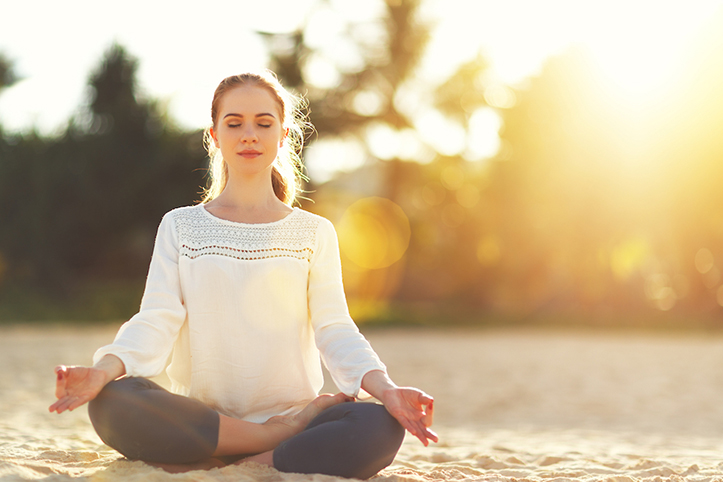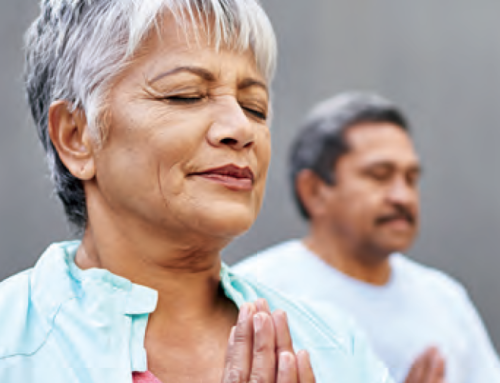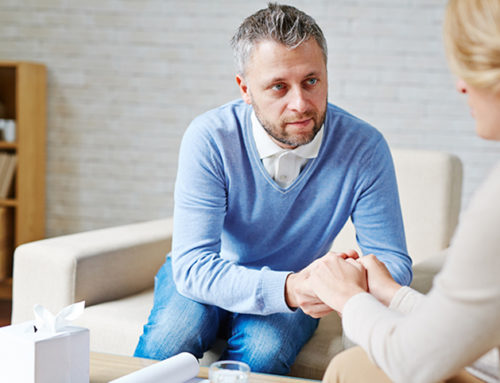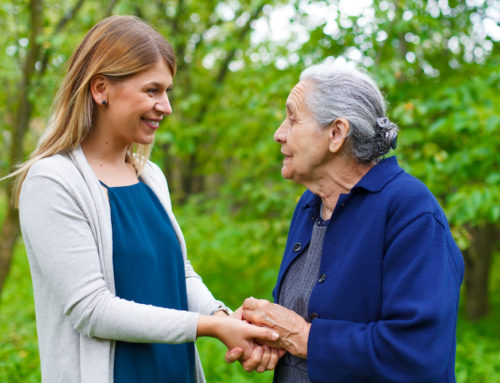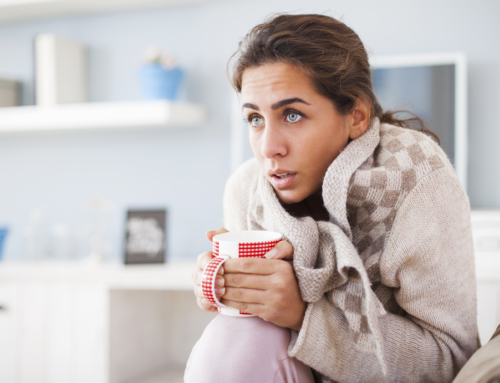Take control of racing thoughts and your spinning mind with these natural strategies for reducing anxiety.
Occasional anxiety and nagging feelings of worry are a normal part of everyday life. In fact, about 18 percent of adults in the U.S. will experience anxiety, according to the National Institute of Mental Health.
Though you can’t always control what happens, you can learn to control your reactions. Read on for strategies to ease your mind and body, and prevent letting fears and anxiety get the best of you.
1. Breathe.
According to Lina D’Orazio, PhD, assistant professor of clinical neurology at the Keck School of Medicine of USC, breathing is half the battle.
“One of the most reliable methods to turn down the volume on physiological arousal associated with anxiety is deep breathing,” Dr. D’Orazio said. “When we’re anxious, the sympathetic nervous system in charge of getting our bodies ready for fight/flight/freeze kicks in, even if the trigger of your anxiety isn’t life-threatening.”
Dr. D’Orazio, who also is a psychologist at Keck Medicine of USC, recommends the yogic “four-seven-eight” breathing technique, in which you breathe in for four seconds, hold your breath for seven seconds and then slowly exhale for eight seconds. She says this directly triggers the parasympathetic nervous system, “which allows the body to reset and recover. Your heart rate slows down, muscle tension subsides and the brain’s frontal lobes reactivate. These physiological changes can help the brain register that it’s safe to relax.”
2. Get outside.
Walking outdoors in nature for 20 minutes has been shown to reduce stress hormones. It gets your heart rate pumping and helps boost your vitamin D levels, which is important because vitamin D deficiencies have been linked to depression.
3. Meditate.
Take a five- or 10-minute break to breathe deeply, calm your mind and focus your thoughts. Meditation has been shown to reduce anxiety and stress while lowering your blood pressure.
4. Cut out caffeine.
Caffeine is a stimulant, and if you’re prone to anxiety, it can cause your thoughts to race and make you jittery.
5. Drink a cup of tea.
Better yet, trade your morning cup of java in for a steaming mug of chamomile tea. Research has shown that chamomile can be as relaxing as valium without the sleepy side effects.
6. Exercise.
One of the major causes of anxiety is concern about weight and health, so what better way to tackle those fears head-on than exercising? Regular exercise has been shown to ease anxiety and depression both in the short and long term.
7. Sniff some lavender.
The soothing scent of lavender has long been associated with relaxation and sleep. Studies have shown that it can ease anxiety in stressful situations, such as before a test or a visit to the dentist.
8. Get out and see friends.
Going to dinner with your friends or doing an activity like getting your nails done or watching a football game together doesn’t only distract you; it will help reduce stress levels, according to the American Psychological Association (APA).
9. Focus on the bright side.
Though it can be frustrating for someone to tell you to relax when you’re in a state of anxiety, avoiding negative self-talk such as saying “I’m stupid” or “bad things always happen to me” can go a long way toward making you feel better, reports the APA.
10. Consider seeking help.
If your anxiety still isn’t under control even with strong self-care practices or it lasts for weeks, it may be time to seek out a psychologist for professional help.
By Anne Fritz
If you are in the Los Angeles area and are looking for exceptional care from some of the top physicians in the world, be sure to schedule an appointment by calling (800) USC-CARE (800-872-2273) or by visiting keckmedicine.org/request-an-appointment.

